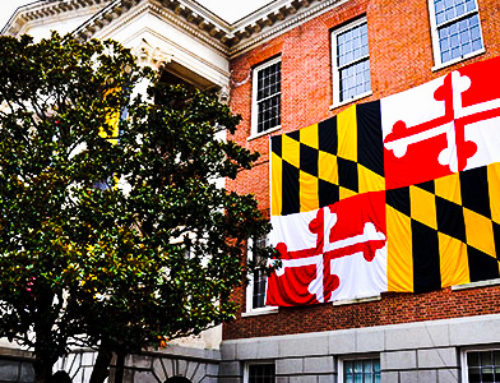View by Topic
Recent Articles
-
Congress Blocks California’s Gasoline Car BanSaturday, May 31st, 2025
-
EPA Will Keep Current Limits for “Forever Chemicals” in Drinking WaterSaturday, May 24th, 2025
-
Court Indefinitely Pauses SEC Climate Rule LitigationSaturday, May 17th, 2025
-
Maryland is About to Regulate Mold But is the Cart Before the HorseSaturday, May 10th, 2025
View by Month/Year
“Green Building Law Update” Headlines
Recent Articles & News from
Stuart Kaplow’s blog
at GreenBuildingLawUpdate.com
- Congress Blocks California’s Gasoline Car Ban: A Legal and Policy Analysis June 1, 2025
- EPA Will Keep Current Limits for “Forever Chemicals” in Drinking Water May 25, 2025
- Court Indefinitely Pauses SEC Climate Rule Litigation May 18, 2025
- Maryland is About to Regulate Mold: But is the Cart Before the Horse? May 11, 2025
Subscribe to the Green Building Law Update!
Stuart Kaplow brings his expertise and extensive experience to the table with his unique digital publication, "Green Building Law Update". Subscribers receive regular updates to keep them informed about important issues surrounding Environmental Law, Green Building & Real Estate Law, as well as the emerging demand for Environmental Social Governance (ESG).
Get fresh content through the lense of Stuart Kaplow's cutting-edge expertise, innovative commentary and insider perspective. Don't miss another issue! Subscribe below.
Legislative Wrap Up: Real Estate in the 2005 Maryland General Assembly
The 2005 session of the Maryland General Assembly adjourned at midnight on Monday, April 11th. After consideration of 2,632 bills over 90 days before sine die, the legislature passed a total of 826 bills (350 Senate bills and 476 House bills).
During the first gubernatorial bill signing on April 12th, the Governor signed 91 bills. Future bill signings are scheduled for April 26, May 10, and May 26.
This is a review of select legislation enacted by the General Assembly that impacts upon real estate, including significant environmental legislation. While there is no doubt value in considering what bills did not pass (including the perennial effort to expand the collection of transfer and recordation taxes), limitations of space do not permit that assessment here.
Legislation has been organized below within the following headings: Landlord Tenant, Real Property, Recording Documents, Homeowners Associations, Environment, State Property, Farm Land, and Disabilities.
Landlord Tenant
SB 339 limits the liability of a tenant for rent under a residential lease to no more than two months’ rent if the tenant terminates the lease before the end of the term because of a medical disability. The tenant must provide the landlord with a physician’s written certification regarding the medical condition of an individual who is a named party in a lease or an authorized occupant under the lease term and a written notice of termination of the lease stating when the tenant will vacate the premises. The new law does not apply if the lease contains a liquidated damages clause that requires written notice to vacate of one month or less and imposes liability for rent less than or equal to two months’ rent after the tenant vacates.
HB 251 makes several significant changes to the Reduction of Lead Risk in Housing Program, including: reducing, as of February 24, 2006, the elevated blood lead level that triggers notification by local health departments from 20 ug/dl to 15 ug/dl; strengthening enforcement authority; expanding the current law to include exterior structures such as playground equipment and benches; modifying the provision exempting specified property from risk reduction standards by requiring that the inspection report state that all interior and exterior surfaces are lead-free or the interior is lead-free and the exterior surfaces that were chipping, peeling or flaking have been restored with nonlead-based paint; etc.
SB 480/ HB 637 reduce from 4% to 3% the amount of interest on a security deposit a mobile home park owner must pay a vacating tenant.
HB 657 protects security deposits under residential leases held by a landlord from attachment by a landlord or a tenant’s creditors.
Real Property
SB 192/HB 412 require the seller of a single family residential property to disclose latent defects in the property, on a to be modified version of the current Disclaimer Form provided by the State Real Estate Commission, to a purchaser before entering into a sales contract. The bill defines “latent defects” as material defects in the real property or an improvement that the purchaser would not reasonably be expected to observe and would pose a direct threat to the health or safety of the purchaser or an occupant. This major change in Maryland law requires a seller to disclose latent defects of which the seller has actual knowledge.
SB 674/HB 921 greatly expand the existing law which governs abatement of drug-related nuisance properties. The District Court may order the nuisance property owner or manager, if he is aware or should have been aware of the drug-related nuisance, to submit a corrective plan to ensure than the property will not again be used for a drug-related nuisance. If an owner or an owner or occupier refuses to abate the nuisance in a residential or commercial property, the court can order the property to be vacated within 72 hours and remain unoccupied for up to a year or until the property is sold in an arm’s length transaction. The court can order that the property be sold or, if it is unfit for habitation or the restitution costs of the property exceed its value, the court can order it to be demolished. In addition, the statue allows a policeman or municipal attorney to disclose information about drugs seized on the property to a community association or its attorney, an owner or tenant or a municipal attorney, in order to aid in the prosecution of the offender.
SB 130 allows the Maryland Transit Authority to enter private property, by court order if an owner will not consent, to conduct engineering or environmental studies to determine if the property is suitable for MTA use. If property is damaged during these studies, MTA must reimburse the property owner or lessee.
SB 761, passed as an emergency bill, seeks to address the growing problem of foreclosure “rescue” scams. The bill regulates lenders known as foreclosure consultants, purchasers, and surplus purchasers. Homeowners in these transactions must be given bold print disclosures of their risk of losing their home in the transfer of property to a foreclosure specialist and consumer protection numbers to call for information. The bill also grants a homeowner the right to rescind a foreclosure consulting contract at any time and to rescind a foreclosure reconveyance at any time before midnight on the 3rd business day after any conveyance or transfer of legal or equitable title to a residence in foreclosure.
Importantly, SB 761 also addresses an issue raised in the 2004 Court of Appeals decision Simard v. White when the court ruled “the order of resale [after a default by a foreclosure auction purchaser] revokes the ratification of the first sale.” The bill provides that an order of resale “does not affect the prior ratification of the sale” nor restore any right or remedy that the mortgagor had (including an opportunity to file bankruptcy or only pay the amount in default).
SB 322/ HB 1374 establish that when the Mayor and City Council of Baltimore City condemns abandoned or distressed property that is subject to a redeemable ground rent, the City becomes the tenant of the ground rent. The City may redeem the ground rent on abandoned or distressed property by following the same process provided for extinguishing an irredeemable ground rent, but instead of paying the specified back rent it may provide an affidavit to the State Department of Assessments and Taxation, awaiting a claim by the landlord.
SB 14/ HB 110 reduce the time in which a person may file suit against a land surveyor for an error in a survey from 20 to 15 years after the survey, or within 3 years after the discovery of the error, whichever occurs first.
Recording Documents
VETOED HB 1298 exempts the transfer of property between domestic partners and former domestic partners from the recordation tax and State and county transfer taxes under specified circumstances. Specified evidence of domestic partnership or former domestic partnership must be submitted in order to qualify for the exemptions provided for by the bill. Under current law, property subject to a mortgage or deed of trust that is transferred between a spouse, former spouse, son, daughter, stepson, stepdaughter, parent, stepparent, son-inlaw, daughter-in-law, stepson-in-law, stepdaughter-in-law, parent-in-law, stepparent-inlaw, grandchild, or step grandchild is exempt from transfer and recordation taxes. This bill provides a similar exemption for individuals who sign an affidavit and provide “evidence of a domestic partnership” as specified.
HB 1472 exempts a real property transfer to a brother, sister, stepbrother, or stepsister from recordation taxes and State and code home rule county transfer taxes.
HB 204 streamlines the deed recordation process from three steps to two. It also changes inconsistent provisions of the law that required a complete intake sheet accompany a deed presented for recordation. The bill allows the clerk to record an instrument that effects a change of ownership in real property if the instrument is endorsed by the local assessment office and prohibits the clerk from refusing to record an instrument that does not change ownership solely because it is not accompanied by a completed intake sheet.
HB 1421 repeals the outdated requirement that a circuit court clerk retain a mortgage or deed of trust for 25 years after it has been released with proper endorsement. The current practice is make a photocopy or digital copy and the original is promptly returned to the person submitting the instrument for recordation.
HB 147, the budget bill, changes the amount of income tax to be withheld at settlement from the sale of real estate by a nonresident individual. Presently, withholding in the amount of 4.75% of the total payment is required. The effect of the new formula created by this bill is to increase withholding from 4.75% to 6% as to nonresident individuals. (The 7% rate of withholding for nonresident entities was not changed.)
HB 159 alters the requirement that SDAT is required to: endorse on a document its acceptance of the document for record and the date and time of acceptance; promptly record the document; and return the original document by providing that, unless the business organization, its attorney, or its agent declines the return of an original document, SDAT must return the document on payment of a $5 nonrefundable fee.
HB 958 specifies how a corporation may file a certificate of notice with the SDAT in order for the corporation to provide notice of matters outside its corporate charter and makes various changes to the laws governing indemnification of a director of a corporation, alteration of a corporation’s name or par value of its stock, the issuance of stock and shares of beneficial interest for the purpose of qualifying as a real estate investment trust (REIT), and the reporting requirements for a REIT.
Homeowners Associations
HB 522 requires that a homeowners association that bases its annual fees on assessed value, take into account any reduction in assessment before levying its fees. This regulation applies only to a development of at least 13,000 acres with a population of at least 80,000. Columbia is the only project that currently meets these criteria.
SB 229 establishes the 23 member Task Force on Common Ownership Communities to: study the education and training needs of board members and of new prospective owners; alternative dispute resolution services for them; the desirability of adopting provisions of the Uniform Common Interest Ownership Act (1994); issues facing aging communities; issues relating to collection of assessments; and generally, issues relating to the resale of units by owners.
HB 282 authorizes a homeowners association to charge a person an electronic payment fee if the person elects to pay the homeowners association with a credit card or debit card. The fee may not exceed the amount actually charged to the association and the new law requires a homeowners association to provide notice that an electronic payment fee will be charged.
SB 430 alters the membership requirements for a nonprofit association, corporation, or other organization in order to qualify as a “community association” for purposes of the existing law limiting the liability of specified associations and organizations and their agents in civil actions. The bill will allow smaller associations to qualify as long as they meet specified criteria, including having been in existence since January 1, 2000
Environment
HB 679 adopts a nationally accepted framework for the environmental covenants that are increasingly being used as part of the remediation process for contaminated real property. They are typically used when the property is to be cleaned up to a level determined acceptable for the potential environmental risks posed by a particular use, rather than to more stringent unrestricted use standards. Enacting the Uniform Environmental Covenants Act establishes rules to govern the creation, applicability, maintenance, and enforcement of an environmental covenant.
HB 792 amends Maryland’s endangered and threatened species laws that generally prohibit the “tak[ing]” of animals listed on the official State Threatened and Endangered Species List. Take means to harass, harm, pursue, hunt, shoot, wound, kill, trap, capture, or collect, or attempt to collect, or to attempt to engage in any such conduct. The Puritan Tiger Beetle is currently listed by State and Federal law as an endangered species with the vast majority of the world’s population of these beetles in the cliffs along the Chesapeake Bay in Calvert County. The Bill authorizes the Secretary of Natural Resources to issue a permit for the “incidental taking” (a taking of listed species that is incidental to, and not the purpose of, the carrying out of an otherwise lawful activity) for shore erosion projects on those Chesapeake Bay cliffs that are private property.
HB 374 is one of several bills introduced to respond to growing concerns regarding Methyl-tertiary butyl ether (MTBE), a gasoline additive that raises the oxygen content in gasoline, which helps engines burn cleaner, thus reducing tailpipe emissions. While originally introduced in the late 1970s to replace lead, today its use is mandated in Maryland to fulfill requirements in the Federal Clean Air Act. This bill requires the Maryland Department of the Environment to provide a specified notice to the appropriate local health department upon a finding by the Department of specified oil contaminants, including MTBE, in groundwater samples. The local health department is then to provide property owners located within one-half mile of a site found to be contaminated with specified amounts of the certain chemicals with a specified notice. And the bill requires a person responsible for an oil discharge to be liable for the costs of providing the notice.
HB 355 requires ‘nontransient noncommunity’ water systems (small public systems that serve schools, daycare centers, shopping complexes, and the like) to test the water provided by the system for the presence of MTBE and report the findings to the Department of the Environment. User must be notified if the level of MTBE in the testing sample meets or exceeds the State advisory level.
VETOED HB 1005 prohibits the Board of Public Works from charging a fee of more than $50 for an individual tidal wetlands license issued for riparian structures or activities not intended to increase revenue to a commercial enterprise and for which a public hearing is not conducted.
HB 168 alters the definition of “tree expert” to require a person who trims, prunes, thins, cables, shapes, removes, or reduces the crown of trees to be licensed and subject to regulation by the Department of Natural Resources, including meeting specified education and experience requirements and passes an exam given by DNR. A person may not engage in the work or business of a tree expert without a tree expert license. The bill expressly exempts persons who treat, care for, or remove a tree that is 20 feet tall or less. Currently, there are over 600 licensed tree experts in Maryland.
State Property
SB 102 is one of two bills that passed addressing the disposition of State property. This bill proposed constitutional amendment, prohibiting the Board of Public Works from approving the permanent disposition of outdoor recreation, open space, conservation, preservation, forest, or park land without the express approval of the General Assembly or of a legislative committee designated by the Assembly. As a proposed constitutional amendment, this bill required an approval by three-fifths of the elected membership, is not subject to gubernatorial approval or veto, and must be submitted to the voters at the next general election in November 2006.
The other approved measure, SB 306 prescribes land preservation and State asset protection procedures, including notification and public hearing, information, and record-keeping requirements, when the disposition of excess real property is owned by the State in fee simple and is property acquired with Program Open Space funds or Rural Legacy Program funds, or acquired as public park land and recreational areas, or the like. The bill prohibits the Board of Public Works from approving disposition of this real property and state-owned real or personal property funded by an appropriation of the General Assembly that has an appraised value of over $100,000, unless certain steps are followed, notice given, and a time period has elapsed. Also, under certain circumstances, if the State declares property as surplus, the land may be sold to the federal government or to a local government for $1. The bill also contains stringent provisions related to budget actions, funding, and transfer tax revenues.
Farmland
HB 74 is one of nearly two dozen bills introduced that would have made changes to the ever expanding Maryland Agriculture Land Preservation Foundation (MALPF). This bill extends the time period from 30 days to 90 days within which a county is required to notify MALPF of approval of an easement termination request.
HB 75 designates the Secretary of Planning or the Secretary’s designee as an ex officio member of the board of trustees of MALPF.
HB 78 clarifies the authority of a county to deny certain applications under local land use regulations for land subject to an agriculture land preservation easement.
HB 79 establishes a deadline for requesting arbitration of disputes over the value of easements under MALPF.
SB 502/ HB 1334 require MALPF and the Department of Planning to create a Critical Farms Program that will provide interim or emergency financing for the acquisition of agricultural preservation easements on critical farms identified by a county that would otherwise be sold for nonagricultural uses.
Property Taxes
SB 717/ HB 1015 change the Homeowner’s Property Tax Credit Program popularly known as the “circuit breaker” altering the calculation of total real property tax for the Program by subtracting the homestead tax credit amount from the total assessment. In addition, the legislation specifies additional eligibility criteria for the local supplement to the Program, which include age, length of residence in the dwelling, rate of increase in the assessments, or any combination of these criteria.
SB 199/ HB 343 grant property tax relief to a homeowner whose home was damaged or destroyed by a natural disaster, in particular Hurricane Isabel. The bill requires two local property tax credits, the first credit, for five years, is for 100% of the property tax attributable to the increase in the assessment of the damaged home after it has been repaired or reconstructed and then revalued with an increased valuation. The second credit, for 50% of the property tax attributable to the increase in assessment, lasting for three years, starts when the first credit ends. Property receiving either of these credits is exempt from the State property tax.
SB 217 continues the research and development tax credit, which sunsetted in 2004, and has the potential to be a key economic development catalyst granting credits for qualified research and development taxes in Maryland. There is a basic research and development credit equal to 3% of the Maryland qualified research and development expenses paid during the tax year, up to the Maryland base amount; and a growth research and development credit equal to 10% of the Maryland qualified research and development expenses paid during the year that exceed the Maryland base amount. The total for both credits combined may not exceed $6 million.
Individuals with Disabilities
SB 630 alters the eligibility requirements for special disability registration plates and addresses other issues pertaining to disability registration and parking. Additionally, the bill is key to real estate owners because as of October 1, 2010, all signs designating a parking space or zone for individuals with disabilities must state the maximum fine for illegal parking, and, as of October 1, 2010, each parking lot in the State must be compliant with the applicable codes.
Brokers
HB 464 authorizes one or more licensed real estate salespersons and licensed associate real estate brokers who are affiliated with the licensed broker to organize and wholly own a limited liability company (LLC). All shareholders in the LLC must be licensed real estate salespersons or licensed associate real estate brokers. The bill authorizes commissions to be directed to the LLC.
Each of the bills described above can be read in its entirety at the Maryland General Assembly website.
Thank you to the Library and Information Services group at the Maryland Department of Legislative Services for the information provided that became the basis of this article.









